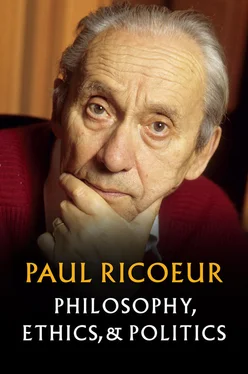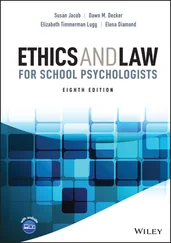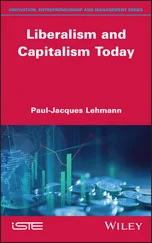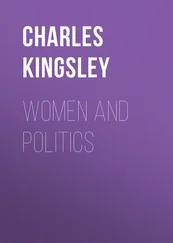The political educator, in this way, divides this task between exploring a here and designating an elsewhere. To be sure, “we still perceive some islands of rationality, but we no longer have the means to situate them within an archipelago of unique and all-encompassing meanings” (p. 17). Just as there no longer exists a grand narrative to recapitulate the past, in the same way there is no longer any utopia capable of projecting the desired future. According to Ricoeur, what remains is human social creativity, which marks the source common to the institutional frameworks that are already present and the horizons that extend beyond them. The philosopher’s engagement lies in the promise to revive this source at the very moment it appears to dry up under the weight of the constraints of “the real.”
Michaël Foessel
1 1 See Paul Ricoeur, Oneself as Another, tr. K. Blamey (Chicago: University of Chicago Press, 1992). “Life: A Story in Search of a Narrator,” in On Psychoanalysis, tr. D. Pellauer (Cambridge: Polity Press, 2012).
2 2 See Paul Ricoeur, Lectures on Ideology and Utopia, ed. G. Taylor (New York: Columbia University Press, 1986).
3 3 See Paul Ricoeur, The Symbolism of Evil, tr. E. Buchanan (Boston: Beacon Press, 1967).
4 4 See Paul Ricoeur, Time and Narrative, tr. K. McLaughlin and D. Pellauer, 3 vols (Chicago: University of Chicago Press, 1984, 1985, 1988).
5 5 Paul Ricoeur, “Tâches de l’éducateur politique,” in Lectures 1. Autour du politique (Paris: Le Seuil, 1991), pp. 239–55. The importance of this text is signaled by Ricoeur as he returns to it in one of the interviews published here, Chapter 4, pp. 42–3: “The task of a political educator is also to continually channel back into the flow of public discussion all that is abusively monopolized by the specialists.”
6 6 Ricoeur, “Tâches de l’éducateur politique,” p. 248.
7 7 This is the sense of Ricoeur’s foray into the domain of ecology (Chapter 10).
8 8 See Paul Ricoeur, “The Political Paradox,” a crucial text written in the aftermath of the events in Budapest in 1956, in History and Truth, tr. C. A. Kelby (Evanston: Northwestern University Press, 1965).
9 9 Ricoeur, “Tâches de l’éducateur politique,” p. 251.
10 10 “Only utopia can give economic, social, and political action a human aim and, in my opinion, a twofold aim: on the one hand, envisioning humanity as a whole; on the other hand, envisioning the person as a singularity” (“Tâches de l’éducateur politique,” p. 252). Here again, the vocabulary will change (becoming less personalist), but the positive function of utopia in the social imagination will be affirmed throughout the work.
11 11 See Paul Ricoeur, Plaidoyer pour l’utopie ecclésiale (Paris: Labor et Fides, 2016).
12 12 See Paul Ricoeur, “Ideology and Utopia,” in From Text to Action: Essays in Hermeneutics, II, tr. K. Blamey and J. Thompson (Evanston: Northwestern University Press, 1991), pp. 308–24.
1. I’m Waiting for the Renaissance 1
JOËL ROMAN AND ÉTIENNE TASSIN: Your first published book, in collaboration with Mikel Dufrenne, 2 is a study devoted to Jaspers. How did you become interested in Jaspers?
PAUL RICOEUR: Before the war, Gabriel Marcel had published the first studies in French on Jaspers, in particular a long article on limit-situations, which really struck me because I was then just starting to focus on the problem of culpability. Later, when we were prisoners of war, Mikel Dufrenne and I were fortunate to have access to the entirety of Jasper’s works in publication at that time. Our attachment to Jaspers was tied to our refusal to repeat the mistake of our predecessors, the veterans of the previous war, who had harshly rejected everything that came from Germany. We thought that the true Germans were in books, and this was a way of rejecting the Germans who were guarding us. The true Germany was us and not them. In publishing this book, in a sense we erased the history of our captivity.
After the war, when Jaspers published works such as The Great Philosophers 3or Von der Wahrheit , 4we no longer followed his work. I have to recognize that what occurred at that time was a substitution, in part, of Heidegger for Jaspers, which I now tend to question: in many respects, there were ethical and political criteria inherent in Jaspers’ thought – that is, constitutive of it – that made even clearer the ethical elision that increasingly appears to me to characterize Heidegger’s thought. Retrospectively, Jaspers leaves me with regret and unease, for I sometimes have the feeling of abandoning him along the way, not having continued this post-war encounter.
Did you meet him personally?
Yes, on two occasions. Just after the war, in Heidelberg, then in Basel. By then he had broken with Germany: while he had endured Nazi Germany, he had not endured democratic Germany, which at that time had not repented. He had dreamt of a sort of collective conversion, a collective avowal of responsibility. I met him in Switzerland just after publishing our book: I wouldn’t say he didn’t like it, but he found it too systematic, overly marked perhaps by its French and didactic spirit, whereas he saw himself more in the image of a mighty torrent sweeping away its banks, which we had channeled.
Over the same years, you encountered Husserl’s phenomenology?
I had already caught wind of it before the war, and at Gabriel Marcel’s, curiously enough. Then I read the Logical Investigations . 5It was one of the faithful attendees of Gabriel Marcel’s “Fridays,” Maxime Chastaing, who directed me to Husserl. Finally, imprisoned in Germany, I had the chance to have a copy of Husserl’s Ideen , 6the first volume of which I translated. I still have the copy from those years of captivity, which I managed to bring back with me despite many obstacles. The translation was written in the margins since we had no paper. In translating Husserl, I had to make a number of choices in translating terms, choices I would not make in the same way today. For example, I did not dare to translate Seiende by “étant” (entity) but by “ ce qui est ” (that which is). Be that as it may, for me this book has remained absolutely fundamental.
In From Text to Action there is an article titled “From Phenomenology to Hermeneutics,” in which I explain that the passage by way of phenomenology is not canceled by a development that more fully takes into account the plurality of interpretations, although in Husserl we find the idea that there are univocal essences about which a coherent discourse can be formulated.
Did you come to hermeneutics later?
I first came to it by way of a problem arising out of my work on the symbolism of evil, which followed a classical phenomenological study on the voluntary and the involuntary. In the latter, I proposed to do for the field of practice what Merleau-Ponty had done for perception. I am returning now, moreover, to the same questions from the angle of the theory of action. In working on the voluntary and the involuntary, I was relying on clearly readable structures: it is possible to express in intelligible terms the nature of a project, a motive, a capacity for action, an emotion, a habit, and so on. These are, in a sense, the chapters of a phenomenological psychology. But there remained an opaque area, that of bad will and evil. It seemed to me then that I had to change methods, that is, to interpret myths, not just biblical myths but also the myths of tragedy, of orphism, of gnosis. By this symbolic detour, I entered into the hermeneutical problem. Certain problems did not have the clarity, the transparency, I thought I discerned in what Merleau-Ponty termed the “membranes” of voluntary acts. Out of this arose two questions: 1. What can we say about the subject who can know himself or herself only by way of myths? What is the opacity of the self to itself that results in having to pass through the interpretation of grand cultural narratives to arrive at self-understanding? 2. Inversely, what is the status of the interpretive operation that serves as the mediation between the self and itself in this reflexive act? Here, I took the route by way of Schleiermacher, Dilthey, Heidegger, and Gadamer. This hermeneutical trajectory seemed to me to repeat the neo-Kantian trajectory of Kant, Fichte, Schelling, and Hegel. I also crossed paths with Nietzsche, who interested me for his critique of transparency and of the self-mastery of rationality. All of these investigations were guided by the question: what can we say about the subject through these various revolutions? How can we move from a position that remains relatively Cartesian in Husserl, in the name of a sort of immediacy to oneself, to the recognition of a growing opacity witnessed in the detour by way of myths?
Читать дальше












